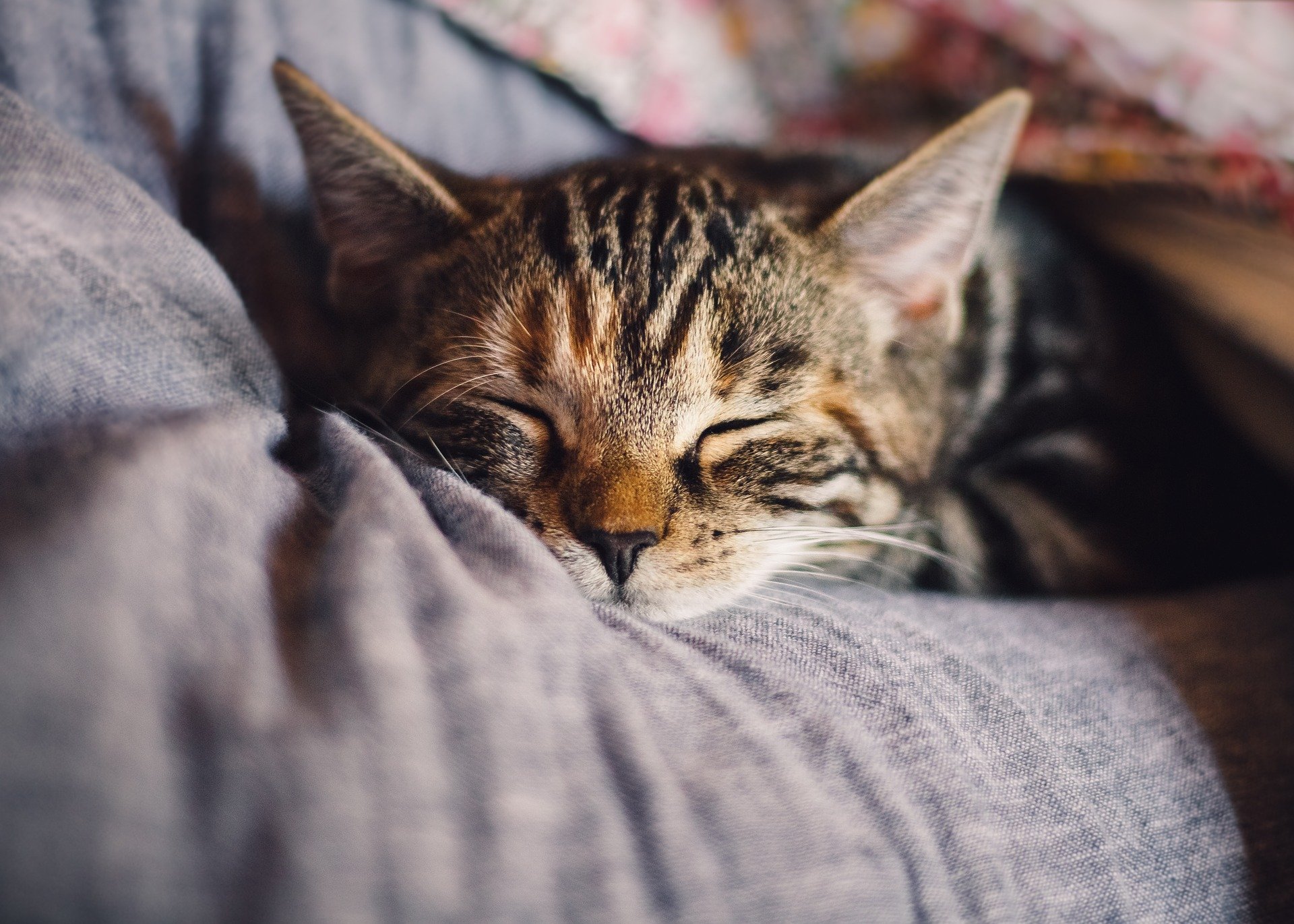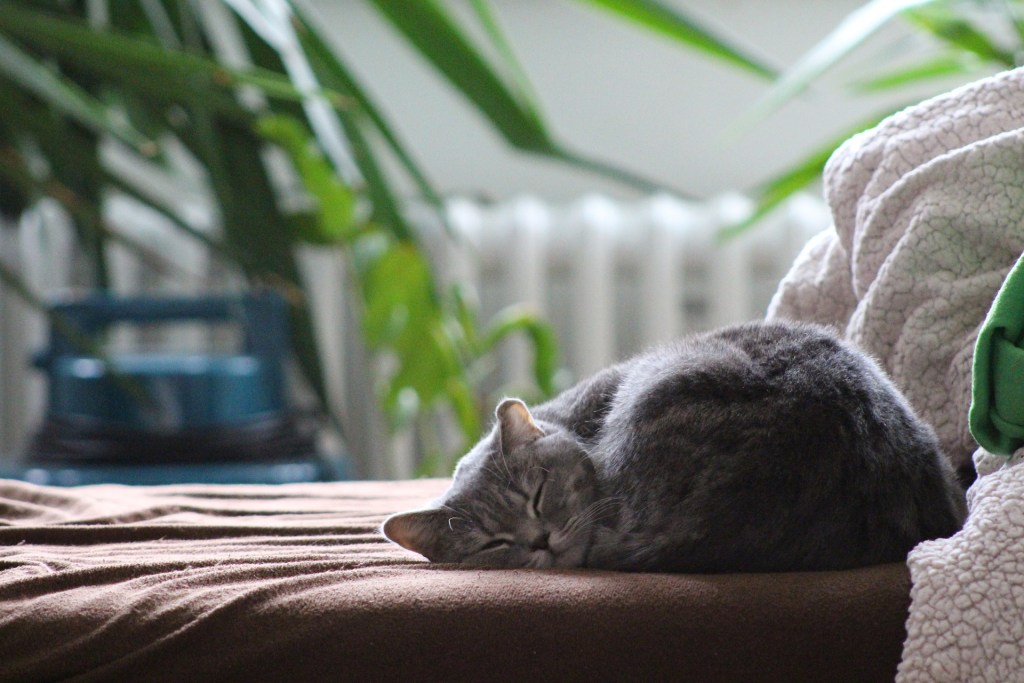Most of the time when your cat takes a nap, he’s probably pretty still. You might notice that he occasionally rolls over, stretches, and repositions himself, but most cats sleep quietly and stay relatively still. But you might also notice that sometimes your cat twitches in his sleep. This can be surprising to see, especially if your cat is normally a quieter sleeper.
A cat twitching in their sleep isn’t altogether abnormal—in fact, there’s a pretty good reason for why you might see your cat do this. But that doesn’t mean that twitching is always normal, either. Understanding what to look for and what could be causing your cat to twitch can help you determine if your cat’s movement is something to be concerned about.

The REM sleep stage
Dr. Jessica Herman, DVM, told Yahoo that if you notice your cat twitching in his sleep, you might just be catching him in his REM sleep stage. During this part of sleep, cats may twitch, stretch, snore, and even squeak. Sometimes their eyes move rapidly too. These movements are a result of your cat’s body sending signals to his brain, but the movements are harmless. In fact, getting REM sleep is important to your cat’s health, so be grateful if you see your cat in this sleep stage.
It’s important to leave your cat alone during his REM sleep because that stage is followed by deep sleep, which is important for your cat’s growth, recovery, and overall health.
Allergies
A cat who isn’t totally comfortable as he sleeps may twitch in his sleep. Dr. Shines told The Wildest that cats who have fleas, allergies, matted fur, or a skin infection may have unusually itchy skin. That itching can cause your cat to twitch while he’s asleep. You may notice that he wakes up and starts to groom himself right away.
This behavior can also occur with your cat’s ears. If he twitches his ears and then wakes up and starts to scratch the area, your cat might have ear mites or even an ear infection. Take a look at your cat’s ears and see if there’s a waxy buildup, which both ear mites and ear infections can cause.
If pests or itchy skin are causing your cat to twitch in his sleep, then it’s important to contact your vet so you can treat the underlying issue.
Seizures
Sometimes twitching can indicate problems, and uncontrollable twitching can be a sign of seizures. Dr. Matthew McCarthy, DVM, told Yahoo that new twitching or jerky movements could indicate that something is wrong and that your cat needs veterinary attention. If you believe you’re seeing your cat having a seizure, contact your vet right away.
If you think your cat’s twitching is abnormal, try to get a video of when it occurs and show it to your vet. Your vet may be able to provide some insight into what’s happening with your cat. Videos can also be helpful to keep track of when the twitching occurs and how long the episodes last.

Strategies to help your cat get great sleep
Sleep is important to your cat’s health, and you can help your cat to get great sleep in a few different ways. Keep your home, or at least a room in your home, warm, even when you’re out for the day or at work. You can make some cozy sleeping spots for your cat by giving him a cat bed or a warm blanket, especially in warmer areas of your home. Cats who have arthritis or who are older may particularly appreciate the warmth and comfort that a heated cat bed offers.
Monitoring your cat’s sleep provides important information about his health. In addition to watching for abnormal activities like twitching in his sleep, keep an eye on your cat’s other sleep behaviors. If your cat suddenly starts sleeping more than normal, or if he starts seeking out unusual sleeping spots like underneath the bed if he hasn’t previously slept there, there could be something wrong. If you ever have doubts about your cat’s health, it’s always a good idea to call your vet’s office. Changes in sleep can occur with many different illnesses, and the sooner you get your cat to the vet, the sooner you can help to get him feeling better.


